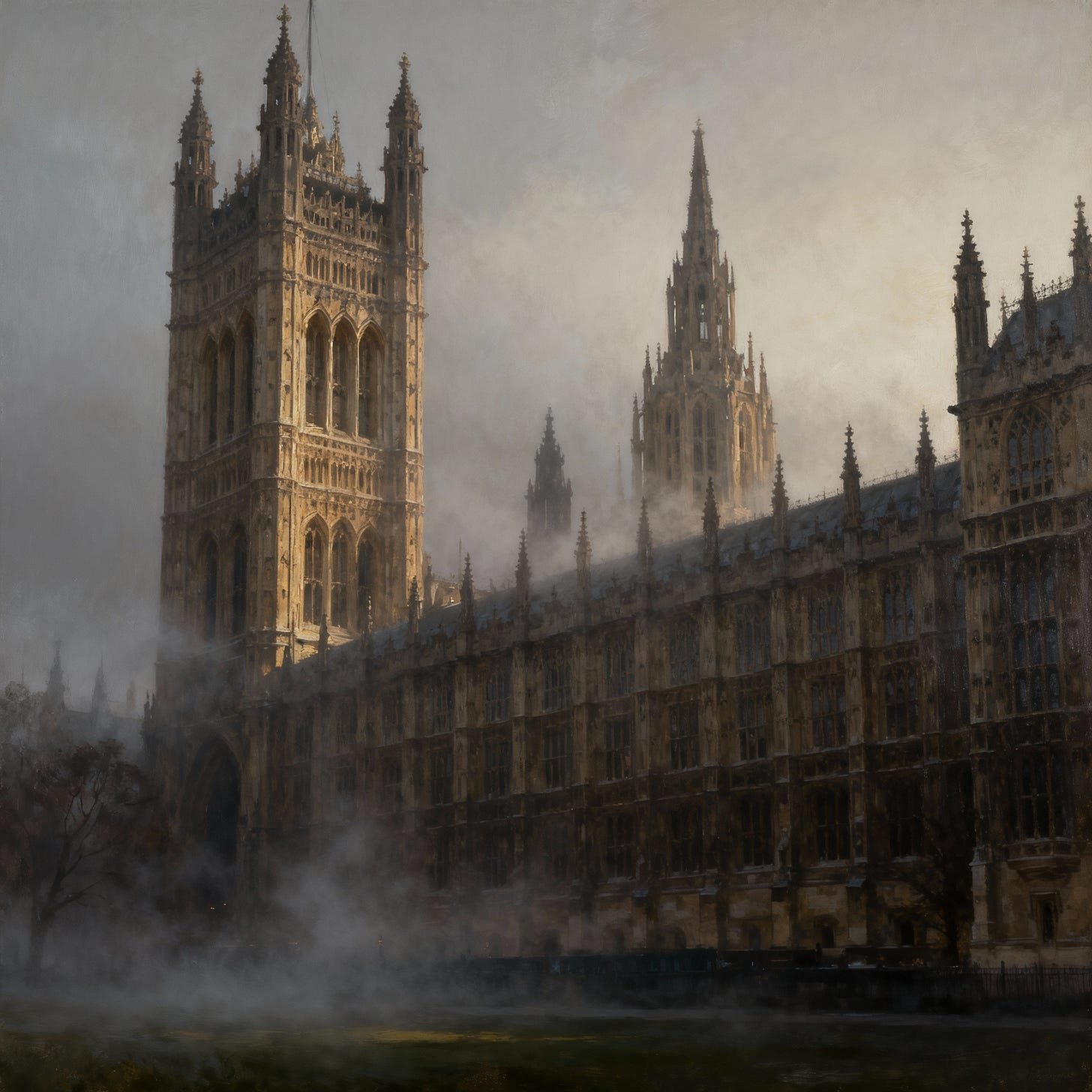Britain's Free Speech Frankenstein
Legislation controlling speech in the United Kingdom has increasingly resembled Frankenstein's monster. There is a better way.
In Mary Shelley’s Frankenstein, the titular scientist embarks on an ambitious journey of attempted omnipotence with tragic consequences: the abominable monster he creates and its implications turn out to be catastrophic not just for him personally but for those around him. In much the same way have we found ourselves in our present struggles in relation to freedom of speech: the laws which govern what can legally be said have come to resemble a grotesque hybrid of overlapping legal regimes and ever-expanding statutes which for centuries have created a confusing patchwork of speech offences.
Speaking to the U.S. House of Representatives last month, Reform UK leader Nigel Farage declared freedom of speech “a fundamentally British value.” Reading this, I couldn’t help but shake my head. Crucially, like the creation of Frankenstein’s monster, our speech laws are and have always been wrongheaded: rarely existing to protect the individual from the state, and principally enforced to prevent individuals from causing undue nuisance to the powers that be.
There is not and has never really been such a thing as freedom of speech in UK law. One of the most robust provisions to that end are found within Article 10 of the Human Rights Act 1998, a transposition of ECHR regulation into the UK’s statute books. However, even this only operates what legal scholars describe as a “qualified right” to expression under Article 10 of the Human Rights Act 1998. This qualified caveat means that freedom of expression “may be subject to formalities, conditions, restrictions or penalties” for broadly defined purposes including national security, public order, and even “protection of morals”. Similarly, Section 29J of the Public Order Act 1986, one of the most important provisions in law protecting the criticism of religion and belief, applies only to that subject and only within the bounds of the act.
Is this freedom of speech? If I had a garden which I declared free for anyone to visit and enjoy, meanwhile imposing innumerable restrictions on who could visit and for what reason, would it really be free for anyone to visit? While freedom of speech may be a British value according to our populace, culture, and customs, the statute books of the United Kingdom have never had anything approaching a legislative guarantee on freedom of speech - especially when compared to countries like the US which have a constitutional guarantee that the Government cannot restrict free expression. In fact, it’s quite the opposite. Crucially, the UK lacks any constitutional mechanism to entrench speech protections - as legal expert Hugh Tomlinson QC observed, “the constitutional protection of free speech requires a constitution,” and the UK doesn’t have one.
Our uncodified constitution ultimately “sets no limits” on governmental power to restrict expression: instead, we have parliamentary sovereignty. But any parliamentary attempt to create speech protections could simply be repealed by subsequent legislation, making such rights fundamentally contingent rather than constitutionally protected. Political incentives and the infuriating tendency of legislators to legislate in response to scandal and outrage, of course, means that parliament has tended to limit acceptable speech and rarely, if ever, broaden it.



